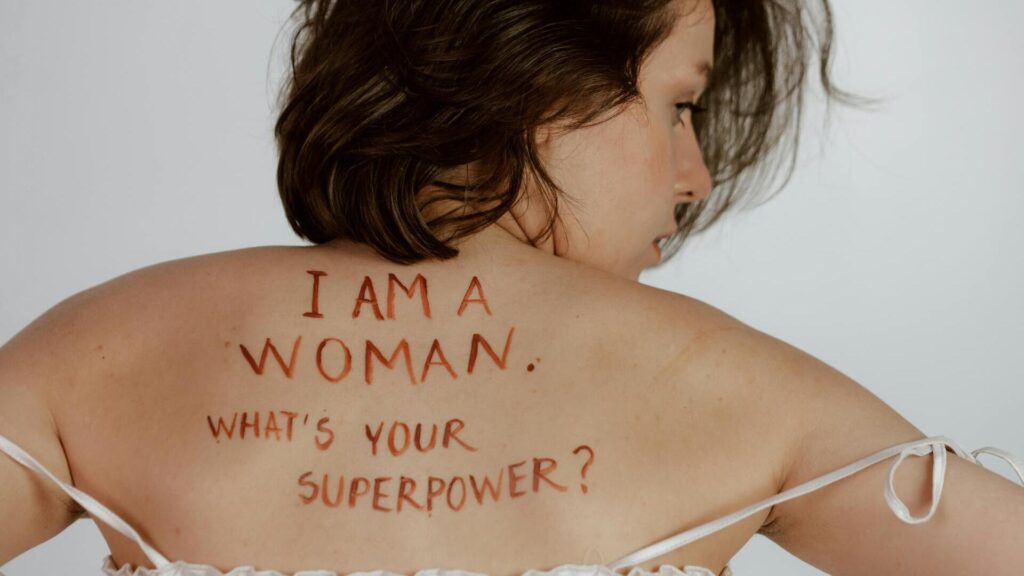Truth & Goodness
Seconds from Midnight: The 2026 Doomsday Clock Hits 85 Seconds
18 February 2026

How many waves of feminism are there? Which one are we currently dealing with? Are the subsequent waves necessarily better than the previous ones? Or are we going astray maybe? Today we need to return to the second wave of feminism – the last one that was interested in the welfare of women.
Feminism has great achievements but at the same time, it is not in the best condition. Initially, in the period known as the First Wave, it fought for women’s suffrage, educational opportunities, and the right to have property and be independent. Then came second-wave feminism, which fought against presenting and using women as objects, not allowing their participation in public debate, oppressive norms of beauty, stereotypes about female irrationalism and emotionality, pay inequality, being raised to passivity and submission, and taking care of all others by women.
It postulated subjectivity, the solidarity of women, their bodily integrity, and finally, the treatment of women as individuals, not additions to the husband and children. The movement asserted the rights of homosexual and black women. It drew attention to the unnoticed and unremunerated female care work, not only over children but also the elderly and disabled. Second-wave feminism has issued great, even brilliant analyses.
After the second wave, however, came a third and fourth. It is not that they have brought only bad things. But consequently, feminism lost its momentum and focused on secondary issues or even those counter to itself. First, we have the “good of all.” There is no feminism without ecology! There is no feminism without LGBTQ! And so on.
Meanwhile, the word feminism comes from the word Femina, which means woman. If any feminism does not exist, it is only one in which there are no women or which ultimately harms women. Feminism has no obligation to care for the planet, animals, or LGBTQ people not being women. These are optional and certainly not primary matters.
That is the problem with third-wave feminism. It claims to have discovered issues of race or sexual orientation, bringing a whiff of what we call intersectionality into white normative feminism. This is not true.
Second-wave feminism not only raised the issue of race but was co-created by black women. It also dealt with the homosexuality of women, to mention the figure of Adrienne Rich, for example. In contrast to the third-wave Judith Butler, she focused on the perspective of lesbians, not all sexually non-normative people.
Moreover, she noted the danger of dominating the demands of homosexual women from the perspective of gay men and the generally masculine type of sensitivity within the sphere of eroticism. In my opinion, this is what we are dealing with. The queer perspective, or contemporary moral progressivism in general, is based practically entirely on the way sexually non-normative men, not women, experience the world. This is evidenced by the recognition of promiscuity as a default type of sexuality and the introduction of various paraphilias, such as BDSM, as emancipatory to the mainstream.

Within the so-called sex-positive policy, worse things have also happened. Since the culture of promiscuity is the default one, there is nothing wrong with phenomena such as prostitution or pornography. After all, they respond to the sexual needs of men, and women earn money thanks to them. It is worth noting that this is strongly incompatible with second-wave feminism, which said that the image of women reduced to male erotic projections violates our dignity and denies equal humanity.
Of course, feminism has always been against stigmatizing women who sell sex. Not because it is a good job, but because someone whose situation forces them to act this way and not another should not be stigmatized. Historically, women have become prostitutes mainly because of poverty. Most of them earned money this way for their children’s needs and their survival. So it is hardly surprising that they did it.
This does not change the fact that both once and today, the sex industry downgrades all women by making their human worth dependent on one factor: Their financially valued sexual attractiveness. This is a very negative message to men who by default become not so much partners, friends, or colleagues of women, but their clients or pimps. It is also a very negative message for children, both girls and boys because it perpetuates their relationship as a relationship between commodity and customers.
The fourth wave of feminism is connected with the #MeToo campaign. Women realize that many of them have been victims of sexual violence and do not want to remain silent about it anymore.
The concept of rape culture and toxic masculinity is emerging, that is the context and attitude from which the mistreatment of women is derived. So there is a culture that reduces women to the sphere of sex, and some kind of masculinity – in the sense of upbringing – that does not see the woman as a human being, because it sees only a body for sexual use.
From the point of view of second-wave feminism, it is obvious that this culture is associated with commonly available pornography, in which it is easy to find simply rape scenes, and that attitude is buying sex, being a prostitute’s client. The fourth wave, however, does not want to admit it and wants to be well-disposed to what it calls sex working, so its concepts become objectless, suspended in the air.
We recommend: Polish Bez Association: Prostitution Is Not Work
Added to this is the belief shared by the third and fourth waves of feminism that femininity does not depend on the nature of the body, i.e. biological sex, but on identification. Moreover, such chosen, felt femininity is somehow more worthy of protection than the ordinary, resulting from the birth of the female sex. So again, the way women, that is, half of all the people, feel the world, including eroticism, turns out to be less important to feminism than femininity somewhat acquired, interpreted from culture, and based mostly on stereotypes.
This does not mean I have anything against transgenderism, but these are not issues that should be crucial to feminism. I would like to remind you that its name refers to femininity in the sense of biological sex, not the cultural structure that is called gender. Questioning this structure is called queer, not feminism.
Feminism may be associated with queer, but it does not have to. If such a combination already occurs, feminism, as it concerns half of humanity, cannot submit to the queer movement, and this happens in attempts to replace the word “woman” with the humiliating term “person with a uterus.”
Feminism has had great success. Unlike other emancipatory movements, it is completely bloodless. We owe it education, which we now benefit from more than men, property, which we have statistically less but have at our disposal, electoral rights, active and passive, which we use.
We have legal instances to which we can appeal in case of domestic violence, parental rights and child support in case of divorce. Some even say that women are privileged in the latter field, although this is a thesis taken too far. Women still care for children disproportionately more than men, so it is no wonder that, for the sake of their welfare, they are more likely to become their primary caretakers.
We have the tools to unmask sexism, that is, treating men as default authorities in every field, and women only in the one in which they have at least doctoral degrees. We can laugh at mansplaining, that is, men explaining to us that rain falls from top to bottom and chickens lay eggs.

So is there nothing left to do and can we trumpet the “end of history” of feminism? Absolutely not. Let’s start with the fact that there are many places in the world where the postulates of the first wave of feminism, let alone the second wave, are not realized. Every year, three million girls have genital mutilation, which is mistakenly referred to as female circumcision. Mistakenly, because the circumcision of boys is an indifferent or even beneficial process for health, so there is no analogy.
Most of the victims of pedophilia are girls, including children married off before puberty. In many countries of the world, girls are fed worse than their brothers and are not sent to school. Many lawmaking treat women as unequal to men when it comes to inheritances from their parents or being witnesses in a court. Women are forced, under threat of death, to conform to strict norms of appearance and behavior that do not apply to men.
All over the world, and not just in remarkably backward areas, murders of women by their partners occur, while the opposite phenomenon is very rare and practically always means killing a man in self-defense. Likewise with rape or abuse of women. Societies often blame victims of violence, rape or murder for what happened to them. There are still a lot of stereotypes about women being irrational, and that they can’t be entrusted with important decisions except those that concern children.
These are not just archaic views. New movements of men, like the red pill, proclaim them in a new, pseudo-scientific casing. From a logical point of view, these theories are completely nonsensical, but they appeal to two large groups of men. The first is men that women would not want as sexual partners. The second group is men who envy women for their achievements.
We recommend: Women in the 21st Century: A Quest for Equity
À propos women’s achievements, they are often underestimated or even overlooked. Public debate, like political power, is dominated by men. Not because they have better arguments, but because we associate men’s arguments with more rational ones, which is not in line with reality. From a similar source comes the disparity in earnings between men and women.
The work done by men is valued higher because it is done by men, not because it is more important to society than those done by women. As I mentioned, in Poland, women are better educated, and yet earn less.
Women were expected to take care of a house in accordance with the Victorian model, which was not only implemented in England by a minority of the population but also concerned women who did not work professionally. In Poland, most women work, so why should they still do everything at home? Examples of negative stereotypes can be multiplied.
Feminism is much needed, and most of all the one that concerns women themselves. Their standard of living, life prospects, respect from other people, and respect for our integrity. Raising girls as people who feel important on an equal footing with others, rather than subordinated to someone as the inferior ones. Women are half of humanity, it is the theme and purpose of a reflection on humanism.
Translation: Marcin Brański
Polish version: Feminizm jako humanizm. Potrzebny powrót do korzeni [wideo]

Science
17 February 2026

Science
17 February 2026

Zmień tryb na ciemny